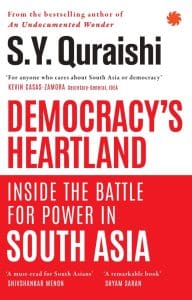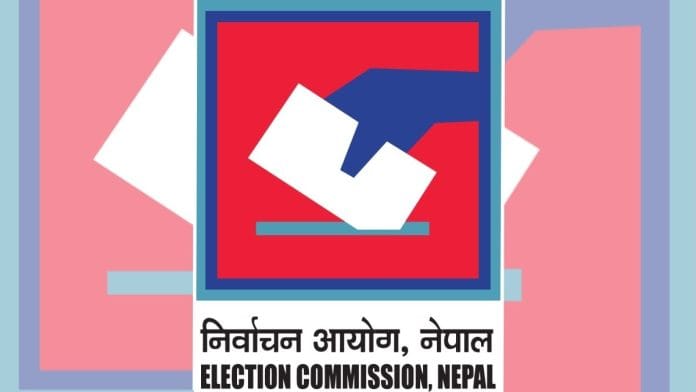The integrity of democratic processes in South Asia rests, in large part, upon the credibility of electoral institutions. As the primary guardians of electoral fairness, election commissions are entrusted not merely with the technical management of elections, but with the moral and institutional burden of sustaining democratic legitimacy. In a region marked by fraught histories of colonization, partition, civil war, authoritarianism and ethno-political strife, the stakes of electoral credibility are particularly high. Election commissions, by virtue of their structural independence, procedural transparency and institutional fortitude, stand – or ought to stand – as bulwarks against democratic backsliding. Yet, across South Asia, the picture is profoundly uneven.
This chapter reconsiders the role of election commissions in South Asia via four cross-cutting concerns. These themes – structural autonomy, militarized politics, and ethnic conflict – are not randomly chosen. They emerge from the empirical record of democratic erosion and resilience across the eight countries this book focuses on, and from the urgent policy imperative of strengthening electoral institutions amid rising authoritarian tendencies and democratic disillusionment.
The classic theory of electoral management bodies, as articulated by Winrich Kühne and others, posits that their effectiveness depends on four essential attributes: permanence, impartiality, independence from the executive and adequate funding. These are not mere administrative ideals, they are democratic lifelines. But to what extent are they observed, undermined or manipulated across South Asia? And how do their fortunes vary in the presence of powerful militaries, polarized electorates, technologically complex elections and unresolved ethnic fault lines?
Take the case of the Election Commission of India (ECI) – widely regarded as the most robust electoral body in the region. Constitutionally entrenched under Article 324, the ECI has over decades evolved into a model of electoral supervision, benefitting from early institutionalization, legal clarity and public trust. However, even the ECI has not remained untouched by political contestation, especially in recent years, as concerns over delayed enforcement of the Model Code of Conduct during elections, allegations of partisan leanings and opaque appointment processes have come under public scrutiny. Still, India’s experience in electoral technology – such as the deployment of EVMs and the introduction of voter verifiable paper audit trail (VVPAT) – legal innovations and institutional resilience provides a reference point for its neighbours, albeit an imperfect one.
Also read: What Amit Shah told me: ‘Not good work, sentiments win elections’
By contrast, the Election Commission of Pakistan (ECP) operates in a vastly different terrain. While it enjoys constitutional status and features a relatively balanced appointment mechanism involving government and opposition, its functional autonomy is often compromised by military dominance and judicial interference. The Bangladesh Election Commission, too, has struggled under the weight of political partisanship, especially in the post-caretaker government era, with its decisions frequently contested and its neutrality questioned.
Nepal’s Election Commission demonstrates an intriguing paradox: while the constitutional design has accorded it significant jurisdictional immunity (with its decisions largely beyond judicial review), its roots in a monarchical legacy and ongoing instability have complicated its democratic stewardship. Sri Lanka’s Election Commission, navigating between post-war reconciliation and resurgent majoritarianism, faces the delicate task of managing elections in a fractured polity.
Even more precariously situated are the commissions in Afghanistan and the Maldives. In the former, the Independent Election Commission had faced existential challenges due to institutional fragility, opaque appointments and security threats, often exacerbated by foreign intervention and domestic fragmentation. The latter, while making progress in electoral reforms, has witnessed episodes of electoral disruption, elite capture and rule-by-decree.
Bhutan’s Election Commission, established under the 2008 Constitution, reflects the country’s cautious yet deliberate transition to democracy. Unlike many of its regional counterparts, the commission emerged not from political upheaval but from a monarch-led reform process, endowing it with an unusual degree of institutional legitimacy. Its mandate is comprehensive – overseeing electoral rolls, political party registration, and campaign finance – within a political culture that remains relatively non-adversarial. Yet challenges persist, including low voter turnout among youth, the influence of socio-religious hierarchies and the difficulty of fostering robust opposition in a still-monarchic ethos. While insulated from the intense partisan contestation seen elsewhere in South Asia, Bhutan’s Election Commission must balance procedural integrity with a deep-seated deference to royal authority.
Thus, rather than assume the election commission as a stable institution in a functioning democracy, this chapter contends with a deeper question: what happens when the democracy itself is in flux? How do electoral commissions navigate executive overreach, political violence, military interference and ethnic polarization, and also retain credibility and public trust?
These questions are not abstract. In an age where democratic backsliding is a lived reality in many parts of South Asia, the role of election commissions – not only as procedural gatekeepers but as moral guardians of the democratic ideal – deserves rigorous scrutiny. They can serve as catalysts of electoral reform and democratic consolidation, or as passive enablers of elite capture and autocracy.
 This excerpt from ‘Democracy’s Heartland‘ by SY Quraishi has been published with permission from Juggernaut Books.
This excerpt from ‘Democracy’s Heartland‘ by SY Quraishi has been published with permission from Juggernaut Books.






